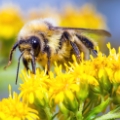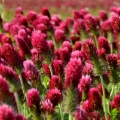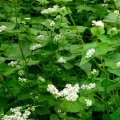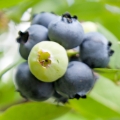Polygonum Capitatum Seeds

Groundcover Specifications
Season: Perennial
USDA Zones: 7 - 11
Height: 4 inches
Width: 12 - 18 inches
Bloom Season: Early spring to early fall
Bloom Color: Pink
Environment: Full sun to partial shade
Foot Traffic: Light
Deer Resistant: Yes
Latin Name: Polygonum Capitatum
Planting Directions
Temperature: 70 - 75F
Average Germ Time: 21 - 60 days
Light Required: Yes
Depth: Surface sow and lightly cover 1/16 inch
Soil Type: Grows in a variety of soil types from sandy loams to clay
Sowing Rate: Approximately 1000 seeds covers 20 square feet
Moisture: Keep seeds moist until germination
Plant Spacing: 12 - 18 inches
Note: For detailed directions for indoor and outdoor planting, please Click Here
Care & Maintenance: Polygonum
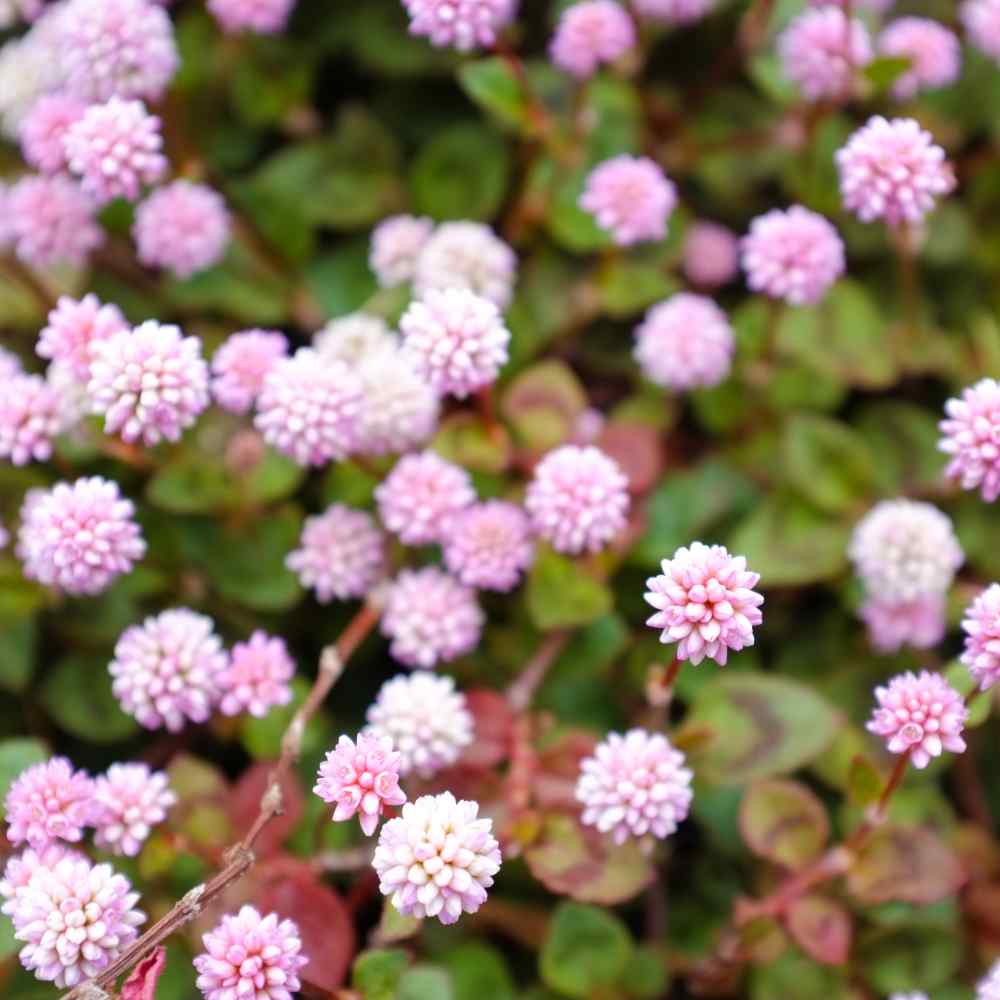
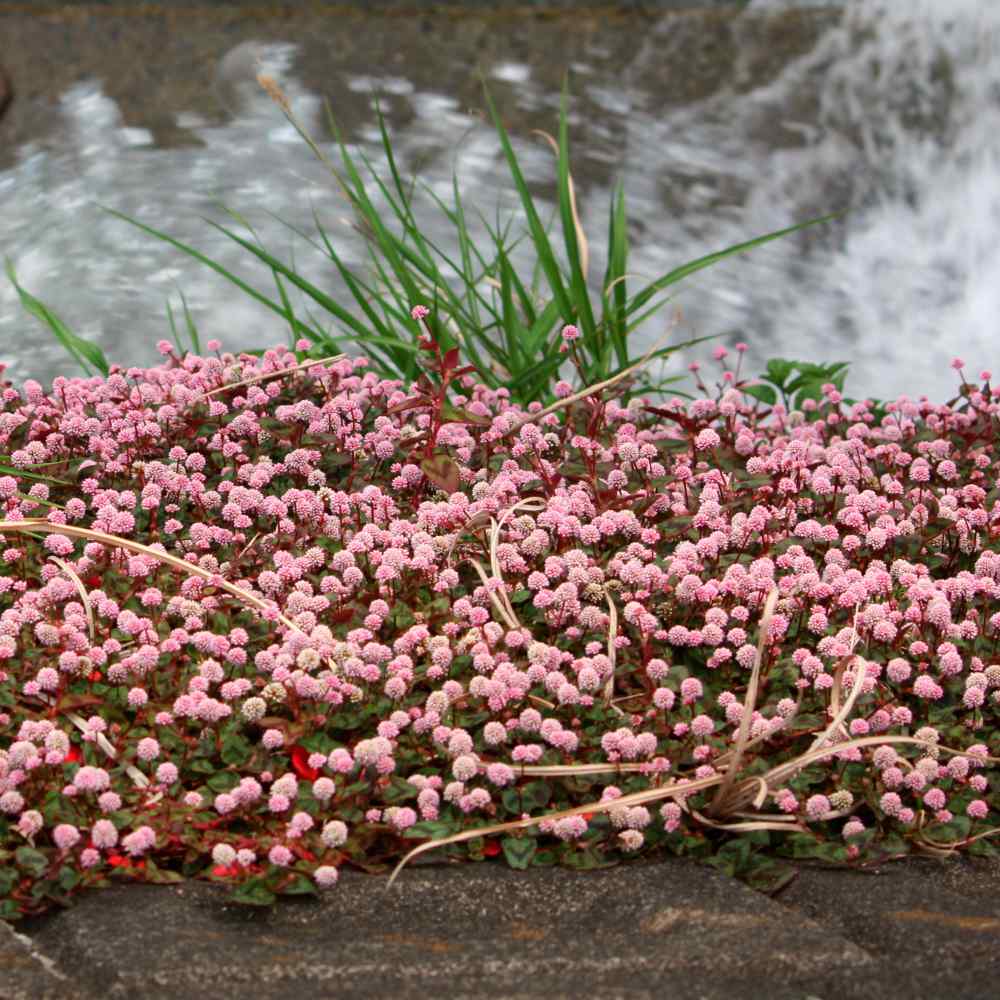
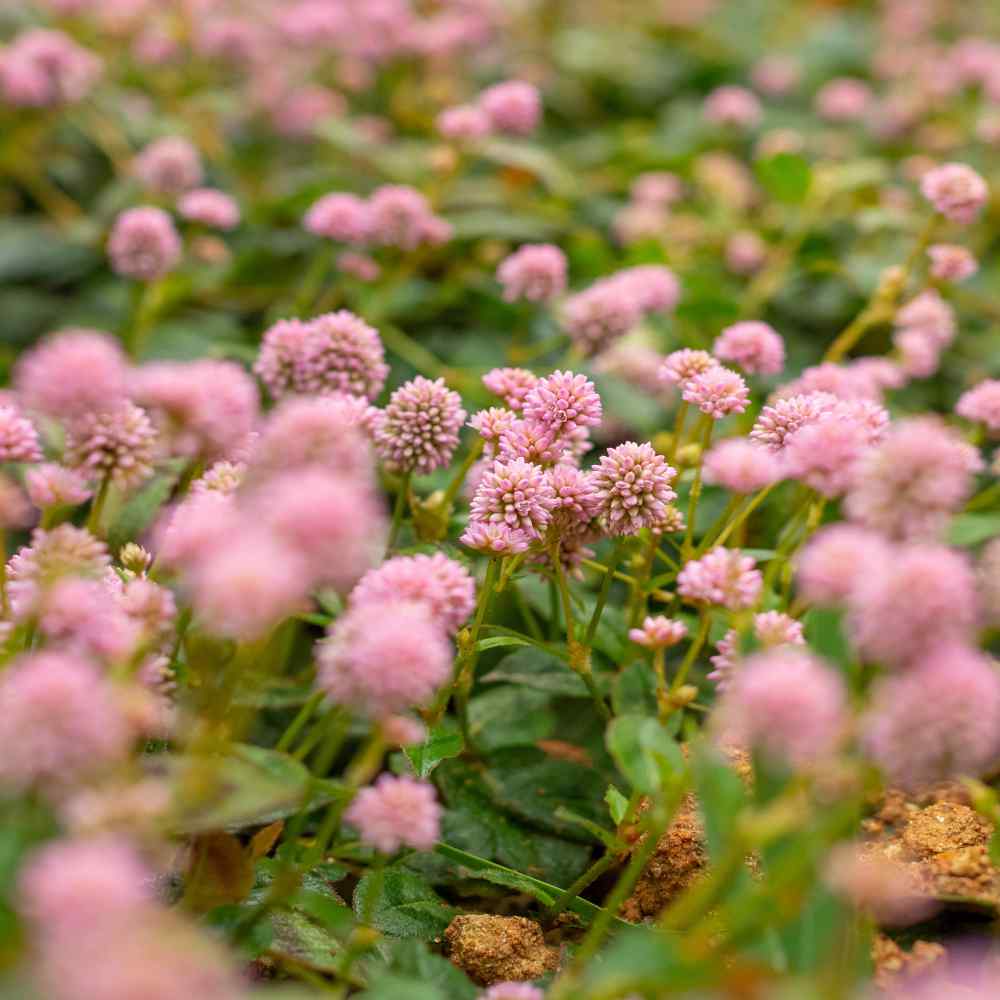
Pinkhead Smartweed (Polygonum Capitatum Punching Balls) - Polygonum Capitatum seeds can be grown to form a low-growing, spreading ground cover. A synonymous botanical name is Persicaria Capitata, and it has many common names: Pinkhead Smartweed, Pink Knotweed, Pink Clover, and Pink Fleece Flower. Pink Knotweed uses include containers, baskets, edging the front of the border or as ground cover plants. It looks especially lovely in raised beds or containers where it can spill over the edges. Pinkhead Smartweed is praised for its burgundy tinted foliage and small coral-pink round flower heads. It is a tough, easy-to-grow ground cover for sun or shade with a long bloom season.
Start Polygonum Capitatum seeds indoors in late winter for areas with a short growing season. Use quality seed starting soil and small pots. Press the ground cover seeds into the moistened soil and lightly cover. Maintain moisture until germination occurs. After danger of frost has passed, transplant the Pink Knotweeds seedlings outdoors after hardening the ground cover plants for 10 days or more. For areas with a long growing season, start the Knotweed ground cover seeds directly outdoors after danger of frost has passed. Prepare a weed-free seedbed and lightly cover the seeds with soil after broadcasting.

